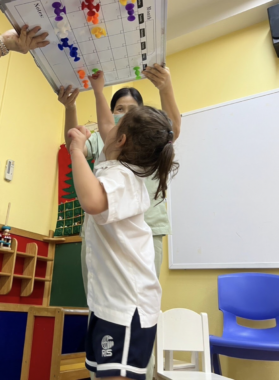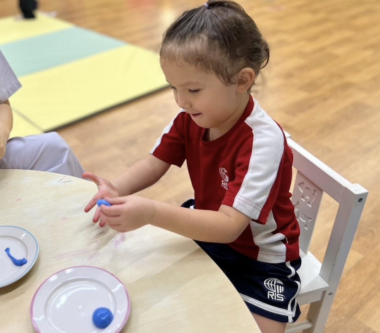How novelty has benefited our daughter with AADC deficiency
New experiences are important in the learning process, a columnist says
Written by |

As a child, I hated expecting the same old routine. The best days were when something unexpected happened. Excitement and thrill induced wonderful feelings and were seared into my memory. Those are still the standout moments for me when I reminisce about my youth.
As an educator, I now know novelty is essential to learning and growth. It’s why my wife and I integrate novelty into our daughter’s schedule.
In 2018, we learned our newborn daughter, Rylae-Ann, had the rare neurotransmitter disease aromatic l-amino acid decarboxylase (AADC) deficiency. Although we didn’t know much about the disease at the time, my wife and I did know one thing: Early intervention would be key if we had any hope of helping our daughter progress.
Rylae-Ann’s delayed developmental milestones began to appear when she was 3 months old and were a sign that something was amiss. In education, when we see delays, we begin an intervention program to correct the delay. Starting early can help children develop the necessary skills to live a happy, healthy, and successful life.
What is novelty in education?
The way we interact with the world and the things we experience have an effect on our brains. The significance of these interactions and experiences is embedded into educational practices because it’s an instinctive way of learning.
Novelty is a new and exciting interaction or experience. Novelty creates heightened senses and captures our attention. These new events activate important neural pathways, which are intriguing for researchers investigating strategies to promote better learning.

Rylae-Ann’s therapist helps her achieve her therapy goal by creating a novel activity that induces curiosity and excitement. (Courtesy of Richard E. Poulin III)
Why does novelty help the brain?
Children will automatically seek out a new toy or find interest in whatever is new in the room. The reason is that novelty makes humans happy.
Brain research has shown that new experiences create a rush of dopamine. This was of particular interest to our family, since AADC deficiency results in little to no dopamine production.
In typical brains, novelty creates an intrinsic motivation to learn and a heightened experience that allows for better memory retention. Novelty then became an opportunity to help reduce our daughter’s developmental delays and possibly help her maximize whatever dopamine she did have.

Rylae-Ann enjoys the new experience of playing with slime while learning with her teacher. (Courtesy of Richard E. Poulin III)
How do I create a schedule that allows for novelty?
The list of symptoms and problems related to AADC deficiency seemed insurmountable at first. However, with time and support from our family and support groups, we created a schedule that allowed us to begin to achieve success with our daughter.
First, we created a schedule for when we’d focus on various therapies. During the week, we had allotted times for physiotherapy, occupational therapy, and speech therapy.
Then came the how. During each therapy session, the activity could change, but the goal would remain the same. For example, if our goal was to build core muscles, we could do a few weeks of swimming for physical therapy, and then switch to horse therapy. The changing of activities would create a novel experience, but both activities would work toward the same objective.

Creating novel experiences can be achieved by changing the environment, such as Rylae-Ann visiting a lake during a trip to Taiwan in 2022. (Photo by Richard E. Poulin III)
Caregivers benefit from novelty, too
Tapping into novelty allowed our daughter to improve her learning and make progress. It also created new and beneficial experiences for us as parents. We didn’t know anything about rare diseases or therapy at first, but we quickly learned along with our daughter. Changing venues and activities also gave us a dopamine rush and kept us motivated.
Today, we continue our schedule of therapies that rotate through novel and varied activities. Consider how you can add a dose of novelty to improve your journey and create lasting memories with your child.
Note: AADC News is strictly a news and information website about the disease. It does not provide medical advice, diagnosis, or treatment. This content is not intended to be a substitute for professional medical advice, diagnosis, or treatment. Always seek the advice of your physician or other qualified health provider with any questions you may have regarding a medical condition. Never disregard professional medical advice or delay in seeking it because of something you have read on this website. The opinions expressed in this column are not those of AADC News or its parent company, Bionews, and are intended to spark discussion about issues pertaining to aromatic l-amino acid decarboxylase deficiency.






Leave a comment
Fill in the required fields to post. Your email address will not be published.